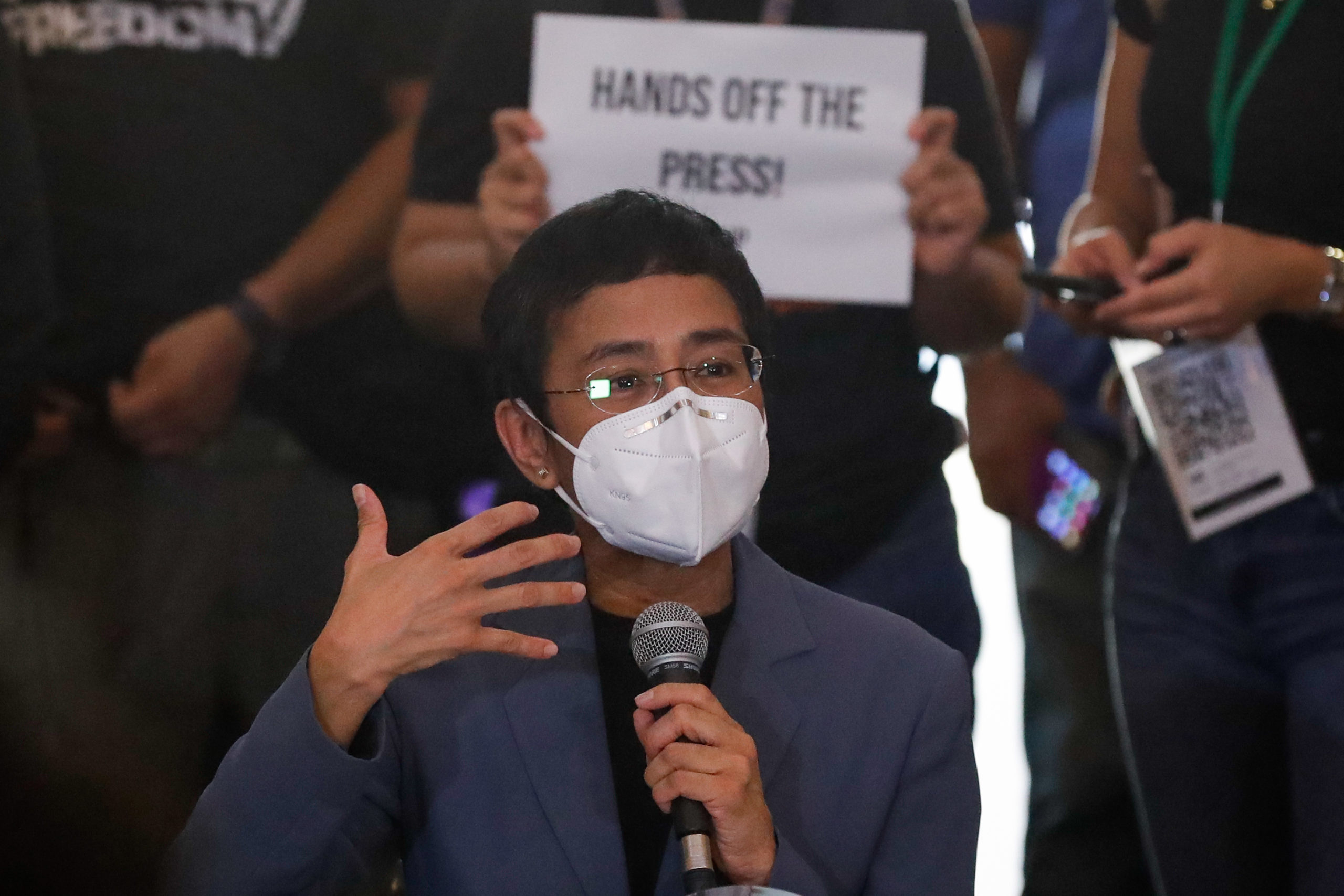For a journalist, nothing trumps a deadline – not even the intensely publicised court conviction of an executive editor.
That was the situation Monday for the staff of Filipino news outlet Rappler, an independent media site with a brand of investigative reporting that has repeatedly drawn the ire of the country’s swaggering President Rodrigo Duterte, as they watched a judge find Rappler founder and CEO Maria Ressa and former reporter Reynaldo Santos Jr guilty of “cyber libel” in a charge initiated from an article published in 2012.
But while press advocates denounced the verdict as an attempt to chill expression in the Philippines, Rappler has no intention of giving up its mission or accepting the ruling against its chief. Glenda Gloria, managing editor and veteran journalist, told the Globe the outlet’s reporters haven’t stopped chasing stories as its attorneys now prepare to appeal the verdicts against Ressa and Santos.
“We were, the entire day yesterday, still working even as our CEO was being convicted,” Gloria said Tuesday. “Because this is what we do at Rappler, and Maria expects us to not be distracted by this.”
Rights observers sounded alarms over the convictions and their potential six-year prison sentences as a bellwether for declining speech protections in the Philippines. Gloria pointed out Ressa’s conviction came in tandem with an as-yet unfinalised anti-terrorism law she described as “draconian” and which critics expect could lead to further restrictions of civil rights. The measure would grant authorities the power to make arrests without warrants and expand their ability to carry out surveillance on the public.
Gloria fears the legislation, which awaits only Duterte’s signature to become law, could be used to target members of the media who run afoul of the state.
If that comes to pass, it would be only the latest tool available to press opponents in the government. On 5 May, a regulatory office under the auspices of Duterte hit ABS-CBN, the Philippines’ largest television network, with a closure order after members of Congress denied the renewal of the broadcaster’s license. The move yanked the TV conglomerate and its news channels off the air at a time when Filippinos were hungry for information about the ongoing Covid-19 pandemic.
Rappler too has faced a salvo of legal attacks under the Duterte administration. In 2018, the national Securities and Exchange Commission revoked the company’s license amid accusations Rappler had broken Filippino laws prohibiting foreign ownership in the media industry. The outlet’s attorneys have, so far, fought the order, and Rappler as an organisation was not implicated in the Monday verdict. Ressa herself has been the subject of numerous criminal complaints and in 2019 battled eight different charges.
Gloria said Rappler leadership held a virtual meeting after the ruling to check in with staff and “assure them that we will appeal the case”. Though some had been hopeful Judge Rainelda Estacio-Montesa would deliver a not-guilty verdict, Gloria said Ressa herself had prepared for the worst, going so far as to pack a “jail bag” beforehand.
No matter the semantics, the technicalities etc., at the end of the day if they can do that to Maria Ressa, if you’re an ordinary journalist then the reality is facing you right there
“She’s been confronting these attacks for the past four years so she knows anything can happen, the law can be twisted”, Gloria said. “But she realizes she cannot back down, and she will not back down.”
Ressa herself pledged as much on Twitter, writing after her conviction: “Our search for justice continues.”
The standard crime of libel in the Philippines has a statute of limitations of just one year. Cyber libel, on the other hand, has a statute of 12 years that begins whenever an allegedly libelous piece of content is uploaded to the Internet. Gloria notes the article in question for which Ressa and Santos were convicted was published in May 2012 — almost four months before the legislation criminalising cyber libel, the Cybercrime Prevention Act, was signed into law.
Ressa wrote on Twitter she was “stunned that Judge Montesa ignored the legal acrobatics that made this case possible.”
“The barely veiled contempt in the decision for me and Rappler truly makes me wonder,” she wrote.
The appearance of political motivation in the trial against Ressa and Santos drew the attention of journalists the world over but was especially watched by those working in the archipelago. Gloria said Rappler has received an outpouring of solidarity from both media figures and ordinary Filippinos alike, many of whom see the case against Ressa as an ill portent for their own freedom of expression.
International human rights groups blasted the charge against the journalists as “absurd” and on Monday condemned their conviction as a “sham”. Gloria believed the verdict and potential six-year prison sentence delivered an undeniable message to the rest of the Filipino press corps.
“It’s as clear as day”, she said. “No matter the semantics, the technicalities etc., at the end of the day if they can do that to Maria Ressa, if you’re an ordinary journalist then the reality is facing you right there.”
For now, that warning may serve the opposite of its purpose. Gloria believes the struggles of the press during the past four years now culminating with the conviction of Ressa have helped galvanise journalists in the Philippines and encourage them to work together to assert their right to speak.
“The silver lining is that we know where we stand now vis-a-vis press freedom”, she said. “There will always be some of the media carrying the government line but a large chunk of the professional journalists in the Philippines now realize that this is what we’re facing — an existential threat.”


